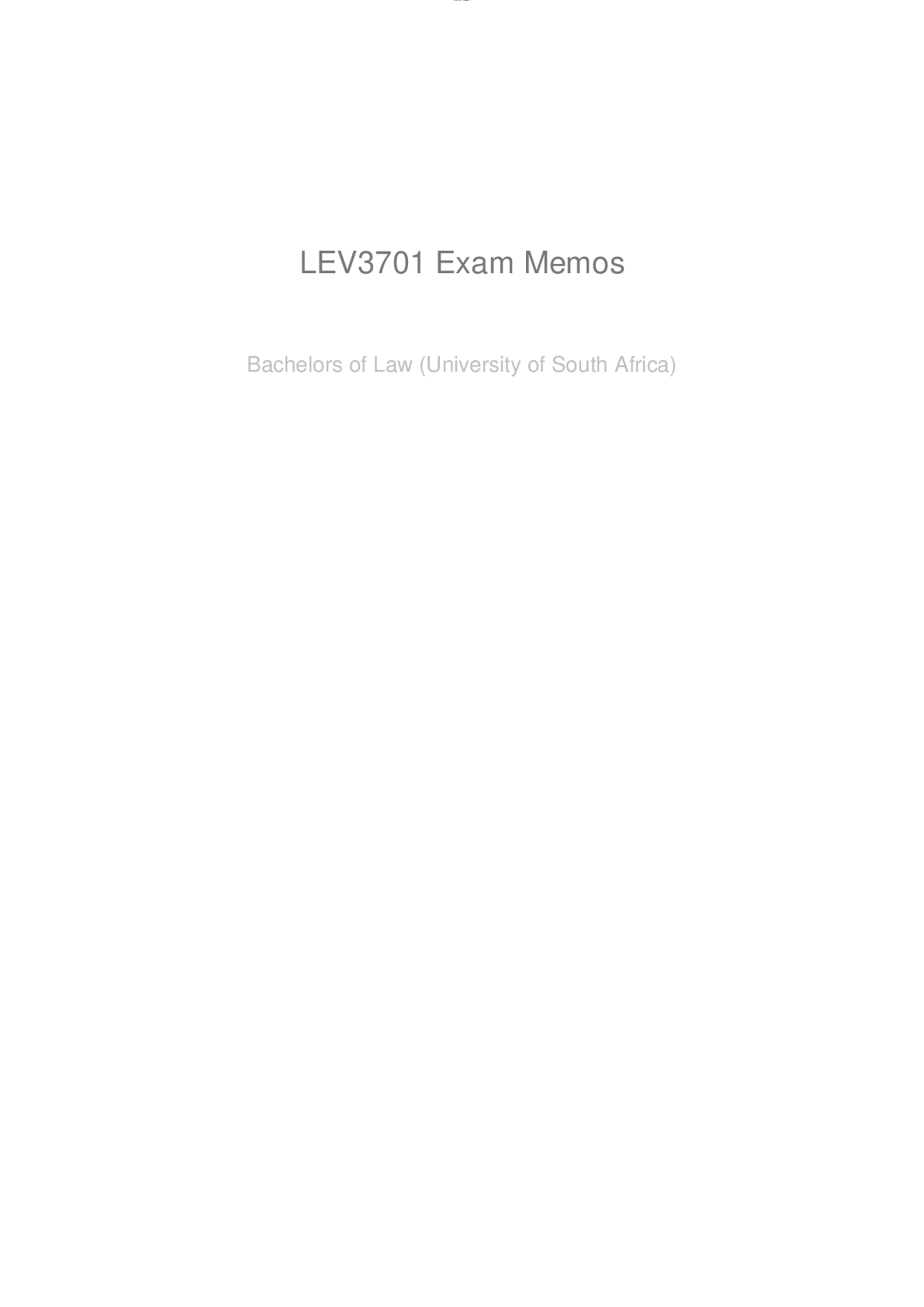LEV3701 Exam Memos Bachelors of Law (University of South Africa)
Course
Philosophy
Subject
Chemistry
Category
Exam
Pages
31
Uploaded By
ATIPROS
Preview 5 out of 31 Pages


Download all 31 pages for $ 14.00
Reviews (0)
$14.00
